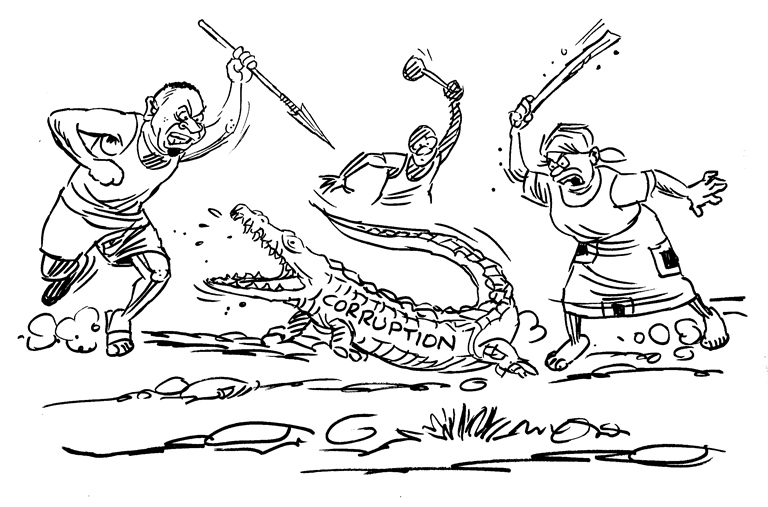Role of citizens inethical leadership
This is a continuation from last week’s reflections on the role of ethical leadership in the fight against corruption as inspired from conversations with Dr. Edister Jamu, a member of the National Integrity Committee which is overseeing implementation of the National Anti-Corruption Strategy II (NACS II).
In that discussion it was shown that ethical leaders demonstrate integrity, respect, trust, fairness, transparency, and honesty. Obviously, the story of leadership is not complete without followership. It has to be said that effectiveness of leaders is contingent upon effectiveness of followers.
This entry, therefore, explores where followers or citizens come in to ensure that leaders continue treading the path of ethical leadership in the fight against corruption. NACS II is unequivocal on this. Implementation guideline number seven (vii), inclusivity, highlights promotion of participation of all including the marginalised and vulnerable groups in the fight against corruption. This participation is not just a token. It is a very important cog in the anti-corruption war chest.
The public or citizens who are effective followers or participants in the fight against corruption posses a number of key qualities. Here, I will highlight two. One, they are active and engaged. Two, they possess courage and honesty.
As active and engaged participants citizens will ask questions and speak up when there is confusion or chaos in the fight rather than passively allowing the confusion to escalate. For instance, when active and engaged citizens see agencies that claim to fight corruption fighting each other they will call them and challenge their wayward behaviour. That way, active and engaged citizens prevent dysfunction in the fight against corruption. The second quality that I highlight is not too distant from the first.
Courage and honesty in speaking up is a quality that all individuals who strive to keep their leaders and organisations or societies ethical have. This is when citizens notice a problem and take responsibility to ensure that the problem gets resolved. They would, for instance, escalate the issue by taking necessary steps to report it to relevant offices. Efforts by such graft fighting agencies as the Anti- Corruption Bureau will benefit immensely from a courageous and honest citizenry. Failure to courageously and honestly assume responsibility and act is only a recipe for greater catastrophes.
Hasn’t Mother Malawi already suffered from effects of poor followership when citizens lacked the above two qualities? The consequences of poor followership are not too distant and perhaps many Malawians will have a personal experience to relate to when it comes to recent disasters such as what resulted from Blantyre City Council’s failure to vacate an injunction on settlements around Soche Hill or the amount of public money lost in early 2018 on a sub-standard dyke that was constructed in Nsanje District. The examples are many.
NACS II’s singling out of public apathy and social norms as some of the key drivers of corruption only hold because the public is reluctant and unwilling to play a role in reporting or stopping corruption or because the public views corruption as a way of life such that without it, one cannot survive. This tolerance or acceptability can be seen in such remarks as, “munthu wa Mulungu nayenso ndimunthu amafuna kudya”, when our leaders veer off the ethical road. I conclude by emphasising that the fight against corruption requires citizens/followers who can look their leaders in the eye and tell them that by engaging in unethical behaviour or tolerating breaches of the ethical code of conduct they have lost the moral ground to lead. In so doing, the followers or citizens are simply aiding their leaders in exercising effective leadership.




